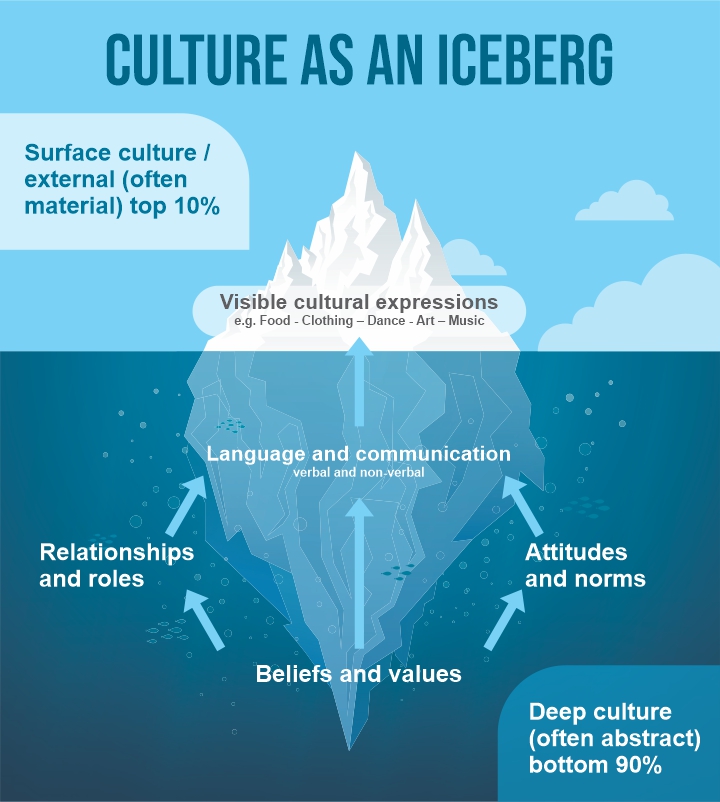Author’s Corner
In this white paper, Audrey Cushing, AVP Business Operations and Quality, discusses the importance of culture from a global outsourcing standpoint, as well as interesting facts and common misconceptions about India.
Please click on the video to the right to learn more about the author, hear her insights on this paper, and learn what motivated her to write about the importance of culture in outsourcing.
To discuss this white paper in detail, please contact Audrey using the information provided at the bottom of the page.
For decades, global outsourcing has proven to be a powerful strategy for organizations in reducing operating costs and improving efficiency. India continues to be the largest outsourcing destination in the world, in large part because of its low labor costs and large talent pool of English-speaking college graduates. Hence, India has developed vast expertise in handling outsourced work.
The Indian workforce has earned a reputation as being both creative and innovative, producing the high-quality results organizations expect when outsourcing. India’s outsourcing industry is largely comprised of individuals between the age of 22 and 30. Young and enthusiastic, these individuals are willing to go the extra mile for the service providers they work for and the clients they serve.
Despite the numerous benefits of outsourcing to India, most Westerners are unfamiliar with the Indian work environment; so if contemplating outsourcing, it's important to gain insight into Indian culture and their workplace. Cultural competence is not often addressed in the context of outsourcing relationships, yet lack of cultural understanding has been cited by researchers as one of the largest hurdles in establishing successful outsourcing relationships.
Offshore service providers have long understood that learning about the culture of their business colleagues creates cohesive connections and spend considerable time educating their employees about the nuances of U.S. culture.
The importance of culture
At the core of every successful outsourcing engagement is an effective service provider/customer relationship. Success is defined, in this context, as meeting (and often exceeding) the objectives an organization sets out to achieve when they signed an outsourcing contract. Consequently, relationship management should never be an afterthought. This includes becoming familiar with each other’s cultures and taking the initiative to build rapport.
Not being aware of cultural characteristics can result in significant misunderstandings causing unintended results. That's not what you want to happen with your outsourcing relationship – that's why it is essential to learn about the culture with which you will be working with.
So, What Exactly Is Culture?
Geert Hofstede defines culture as "the collective programming of the human mind that distinguishes the members of one human group from those of another. Culture in this sense is a system of collectively held values." (Hofstede, 1991). Even though some aspects of human behavior are seen as universal, culture has a substantial impact on human relationships. Cultural intelligence is the ability to relate to others and interact effectively across cultures resulting in improved communication and eliminating potential conflict misunderstandings.
The Cultural Iceberg
Anthropologist Edward T. Hall developed the Cultural Iceberg model over fifty years ago as an analogy for the cultural codes that prevail in every society. An iceberg has visible parts on the surface of the water and invisible parts that are underwater. Typically, up to 90% of an iceberg's actual area remains hidden underwater. Similarly, culture and behaviors have both visible and invisible components.
The visible part of culture is the way we live and interact with each other; our traditions, food, and attire." The invisible part below the water consists of our preferences, opinions, values, and beliefs, determining our actions above water. (The Iceberg Model of Culture & Behavior | Harappa Education).

Why Is Connecting Culturally So Important?

In the early 1950’s, just six simple words, a cultural language mistake, spelled disaster for British troops during the Korean War. Chinese soldiers were attempting to cross a strategically important river below a hill held by British troops. In assessing the situation, an English officer described the situation to his American superior as “Things are a bit sticky, sir” which in his mind, meant the situation was quite dire. Coming from another culture, the American superior did not understand the gravity of the situation and failed to send reinforcements or order a retreat. The Chinese troops decimated the British over four days, leaving 100 dead and 500 taken prisoner. All because of a six-word phrase, misunderstood because of a cultural language barrier. Had the British officer said, “Things are desperate, Sir,” the outcome for the British troops could have been quite different.
Cultural anthropologists David Hickson and Derek Pugh share the following insight: “When Indians and Westerners work together, everyone behaving perfectly normally as they define it, each side in fact often finds the behavior of the other quite abnormal.” In other words, when people do not understand the behavior of the people they work with, relations often deteriorate quickly. This is exactly why developing cultural intelligence is so important.
Thankfully, outsourcing engagements are not life and death situations, but the cultural dimension of outsourcing relationships is critical to their success. Yet despite this, connecting culturally is something not often considered at the start of an outsourcing relationship when misconceptions often exist.
Common U.S. Misconceptions About India
Despite its huge size and diverse population, India is the subject of many negative misconceptions that can be harmful to how organizations view the Indian culture and how they approach the individuals with whom they will be working.
-
Indian is a poor country. Even though India is a developing nation and home to millions of poor people, the country is ranked among the world’s wealthiest countries. It has its share of billionaires and over a million millionaires. India’s continued economic expansion and the outsourcing industry bring a record number out of poverty each year.
-
Indians are uneducated. Yes, some of India's population is illiterate, but the stereotype does not reflect reality. The Indian culture attaches great importance to education. Doctors and engineers are two of the most popular professions and a great many people have advanced degrees.
-
India is dirty and chaotic. The media constantly portrays India as a country of dirt and chaos. This is not fair, as India has vibrant cities with high-end accommodations, fine dining, and top shopping experiences.
Interesting Facts About India And Indian Culture
Even though more than a century has passed since the death of the American humorist and essayist, Mark Twain is known for writing about his love of India: “India the cradle of the human race, the birthplace of human speech, the mother of history, the grandmother of legend, and the great grandmother of tradition. So far as I am able to judge, nothing has been left undone, either by man or nature, to make India the most extraordinary country the sun visits on his rounds. Nothing seems to have been forgotten, nothing overlooked.”
India’s greatest resources continue to be its people, with a population linguistically and religiously diverse. The Indian constitution recognizes 16 languages with over 500 dialects. All major religions are present in India, the basis of the diverse culture in India and each is celebrated and enjoyed in a respectful way. Although English and Hindi are common languages, India uses English for nearly all business transactions and India is only second to the US when it comes to speaking English.
Vasudhaiva Kutumbakam is a well-known phrase in India that translates to the “world is one family.” In May of 2020, United Nations chief Antonio Guterres openly praised India for providing essential drugs, testing kits, and other medical assistance to other countries, including the U.S., during the height of the coronavirus.
It is not surprising that India is recognized for maintaining strong relations with other countries as Indians place a high value on harmony and unity with others. They are known to be adaptive and creative and keep a light-hearted attitude toward situations that might otherwise be viewed as frustrating. Being polite and respectful take on a new meaning when interacting with Indians and problems are usually managed in a cheerful, cooperative, and innovative manner.
The Workplace
The Indian work environment is based on a strong hierarchical structure. Each employee has a distinct role within the organization, and maintaining that role preserves order. Honor and respect are important attributes, and authority is generally respected among Indians who may hesitate to question a boss or manager due to the respect given to seniors. You will often hear superiors referred to as “Sir” as a sign of respect.
The concept of saving face plays a key role in the workplace. Employees are very careful not to criticize, challenge or embarrass anyone in front of others. Just as in the U.S. workplace, Indian employees don’t enjoy being embarrassed in front of others. Choosing to not offend a colleague, Indians are less direct or blunt, more so than Americans.
How To Do It
That said, the act of questioning, disagreeing with and correcting are a normal course of action in any working relationship. Cultural expert Craig Storti, the author of Speaking of India, shares the following tips for Westerners who are new to working with Indians:
-
Check for understanding. If you are concerned that you did not fully understand what your Indian counterpart communicated to you during a meeting, email the person asking them to verify your understanding.
-
Don’t telegraph the answer you want. Be careful not to inadvertently communicate the answer that you want to hear when communicating with your Indian counterpart. The communications priority of most Indians is to say what they think the other person wants to hear. Storti shares examples to illustrate this point: “We’re still on schedule, right?” or, “You know how to do that, don’t you?” or “I was hoping …. ”
-
Ask Indians what they think. Consider withholding your opinion and first ask your Indian counterpart what they think. Don’t be surprised if their first response is to ask you what you think, especially if they are junior to you. Remember India is a hierarchical society. By not providing your thoughts first, you are validating that you indeed want to hear their views (and are not just being polite).
-
Seek out one-on-one conversations. Indians are especially careful about what they say in any kind of group setting, such as a meeting or conference call. Meeting environments can be minefields when it comes to saying things that could cause a loss of face, either someone else’s or one’s own. Difficult and delicate matters can be discussed more comfortably and openly when meeting one-on-one.
-
Get to know your counterparts. In any culture, when someone takes the effort to get to know you, its human nature to be more relaxed and trusting around that person. Your Indian counterpart will be more likely to speak their mind and be more open with you.
Our Approach
When working with any new culture, initially there can be confusion and miscommunication. Recognizing this, Vee Healthtek's outsourcing relationship model includes a U.S. dedicated operations team of experts in building rapport between our clients and our Indian teams, ensuring early success of the outsourcing relationship and removing cultural barriers.
Connecting culturally ensures your outsourcing partner is empowered to bring out their best performance. Like the pillars of any healthy relationship, successful outsourcing relationships involve commitment and interaction. According to an old Indian proverb, “Greatness is not the fruit of birth, but of effort.” Going the extra mile to learn about the Indian culture can only foster a rewarding and exceptional outsourcing experience with your Indian partners.

